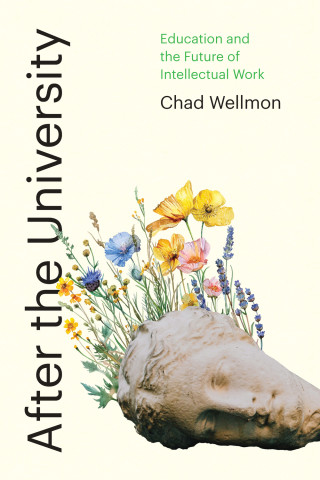
Reviews
This unique, approachable book provides the philosophical and practical tools for framing and sustaining difficult conversations about higher education. Drawing on their combined academic experience, Carrell and Zemsky make an important contribution in an especially fraught and likely pivotal historical moment.
This remarkable, compelling book takes a unique approach to generating thoughtful dialogue among faculty members, administrators, and others with a stake in the ability of universities and colleges to transform themselves for a changing society.
Good leaders assemble the right people to have the right conversations. By masterfully using a format that captures the strategic essence of communication, the authors outline who must be invited, what must be discussed, and how to have deep, generative dialogue to initiate systemic change in higher education.
An essential conversation starter for higher ed! Carrell and Zemsky remind us that what we need in higher ed is less talk and more conversations that entail listening and storytelling. Communicate for a Change serves as a guidebook for any college or university leader looking to promote change.
This book—written for all who care about higher education—is both an inspiring and an urgent 'call to conversational arms' and a deeply practical reminder that our success as educators relies on our willingness to talk with one another about thorny issues. The authors provide a compelling model for engaging the disagreements of our time.
Now more than ever, universities must be empowered to look in the mirror and bring about substantive culture change on our campuses. Zemsky and Carrell argue convincingly that this change will require tough, uncomfortable conversations for us to move forward. Through this book, they demonstrate the courage and authenticity we need in higher education.
Book Details
Acknowledgments
Prologue: Let's Talk
Conversation One: "Why Can't We Talk about the Mess We're In?"
Conversation Two: Can a Commitment to Community Move us Forward?
Conversation Three: The Slogans that
Acknowledgments
Prologue: Let's Talk
Conversation One: "Why Can't We Talk about the Mess We're In?"
Conversation Two: Can a Commitment to Community Move us Forward?
Conversation Three: The Slogans that Ensnare Us
Conversation Four: Why Can't We Connect with Each Other?
Conversation Five: Why are we the Bad Guys?
Conversation Six: Money Talks
Conversation Seven: The Students We Hardly Know
Conversation Eight: Is It Ever Safe to Talk about Changing the Curriculum?
Conversation Nine: Why Can't We Have a Productive Conversation about Differences-Especially Conversations about Race and Gender?
Reflections
References
Index







